Everything that mattered at Facebook's developer conference
From Oculus Rift to Messenger, it was a fascinating F8
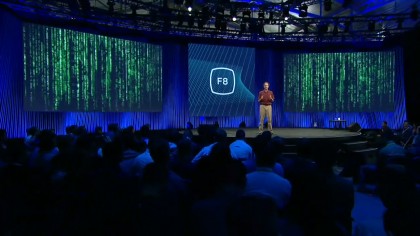
Facebook developer conference highlights
Facebook's F8 conference may be geared toward the guys and gals that help make our favorite social network tick, but there were plenty of announcements that'll impact the everyday usage of folks like you and me.
Perhaps most telling at this F8 was the Day 2 keynote's devotion to virtual reality. Facebook bought Oculus one year ago, and Mark Zuck and Co were clearly ready for the Rift maker to take center stage in front of its developer crowd.
We also heard plenty about Messenger and Facebook's plans to have the service replace text messages and email. Whether you love it or hate it, Facebook is going whole hog on Messenger.
But enough chitchat - tag along as we break down the top news from F8 2015.
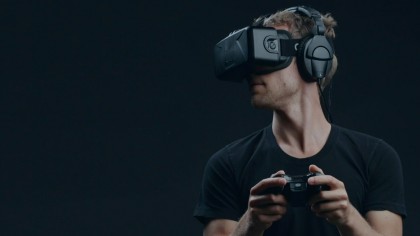
Oculus Rift in 2015 ... maybe
Probably the biggest revelation of this year's dev con came from Facebook CTO Mike Schroepfer, who vaguely announced we can expect virtual reality to arrive in 2015.
While he didn't go so far as to say it'll be the final Oculus Rift we see before the year is up, it's a safe bet this is the VR headgear he was referring to, namely because of the small matter of Facebook owning Oculus.
Update: Schroepfer backed off his keynote comments on Twitter, saying he didn't "announce anything regarding shipping" and was instead referring to PC hardware available this year that can create VR experiences. He apologized for the confusion and said the exact dates "on these things" aren't known yet. Innnnteerreessttiinng.
Schroepfer's keynote statement does corroborate with Oculus founder Palmer Luckey's own vague tease that Rift will be out this year. Oculus CTO John Carmack's previously alluded to Gear VR for the Galaxy S6 releasing by year's end as well, which should put pressure on Rift to come out in time to compete.
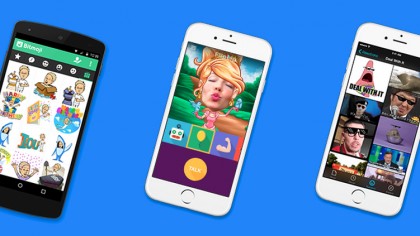
Facebook Messenger applications
The other big ticket item out of F8 was Messenger related.
Facebook is positioning the chat client it forced onto users as an end-all-and-be-all communication station. How's it going to do that? For starters, by giving you third-party apps for new ways of expression and communication with friends.
The Messenger Platform allows developers to create applications specifically for these ends, though as we found out it really comes down to GIFs and selfies, at least for now. TechRadar Associate Editor Lily Prasuethsut checked out some of the 40 applications already created for Messenger, deeming them perfect for the selfie generation.
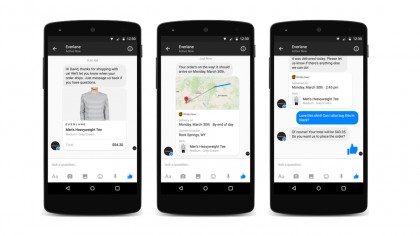
Facebook Messenger for businesses
Additionally, Businesses on Messenger seeks to revolutionize the way businesses communicate with customers.
Launching in a few weeks, the feature will let businesses send things like shipping details and order confirmations to customers, who must opt in to receive the notifications.
Customers can also ask businesses free-form questions about their orders. Facebook hopes this kind of interaction will create a more personable e-commerce experience, one akin to what we used to have back in the day of brick-and-mortar shopping.
The feature is currently being tested with Everlane and zulily, and more business integrations will launch in the coming weeks.

Spherical videos
Being that VR was a major theme of F8 2015, it was no surprise Facebook revealed a feature perfect for the future tech during its Day 1 keynote.
Spherical videos, basically 360-degree vids that let users control where they're looking, are coming to the News Feed.
Not only will this lend a new dimension to Facebook's main hub, it also makes it VR ready. Imagine wearing an Oculus Rift, popping into your News Feed and being instantly immersed in a video posted by one of your friends.
Spherical videos seem like an early but important step in Facebook creating the kind of connected immersion needed for VR to succeed beyond games. We can only expect there will be more such features to come.
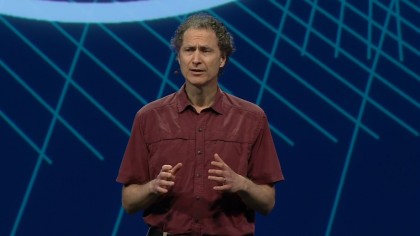
VR still isn't right
Michael Abrash, Oculus' chief scientist, was candid in his keynote presentation about the state of VR.
"VR is just barely good enough," he said. "It can get better."
Blunt words from someone dedicated to making virtual reality viable, and his honesty speaks to the hurdles still remaining when it comes to improving things like sense of presence.
Of course, Facebook and Oculus are dedicated to making VR happen (they have that 2015 release date to hit, after all). Abrash said getting users' hands and bodies into virtual worlds, improving interaction with other people, and pulling in elements of the real world, like mice and keyboards, are areas being worked on. He also noted the tech can potentially change the world, so there's no sign of development slowing down in any measure.
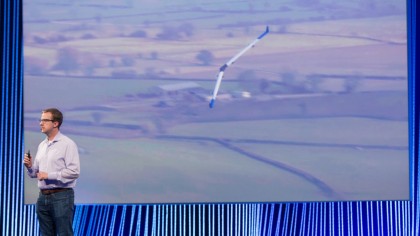
Drones take flight
While occupied with virtual reality and GIF chats, Facebook is still working on the very real issue of connecting the world with the internet.
The company announced during the F8 Day 2 keynote it's conducted the first test flight of its UAV platform in the UK, a crucial development in its work to connect people living in even the remotest areas.
The solar-powered drone will have a final wingspan larger than a Boeing 737 but it will weigh less than a car. Cruising at altitudes of over 60,000 feet, the drones are designed to fly for long periods of time without ever coming down.
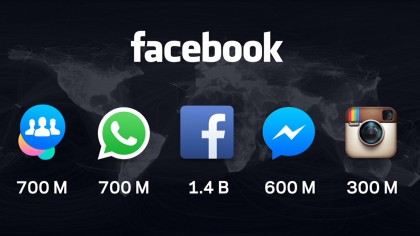
By the numbers
As with every keynote by every company, Facebook had some bragging to do about its users and the amount of time they spend on the social network and its various properties.
Among the figures to stick out were 600 million and 3 billion. That's 600 million monthly Messenger users and 3 billion videos viewed on Facebook a day. Yes, that's "billion" with a "b" and that's a day, as in, every 24 hours.

Michelle was previously a news editor at TechRadar, leading consumer tech news and reviews. Michelle is now a Content Strategist at Facebook. A versatile, highly effective content writer and skilled editor with a keen eye for detail, Michelle is a collaborative problem solver and covered everything from smartwatches and microprocessors to VR and self-driving cars.
Sign up for breaking news, reviews, opinion, top tech deals, and more.
You are now subscribed
Your newsletter sign-up was successful